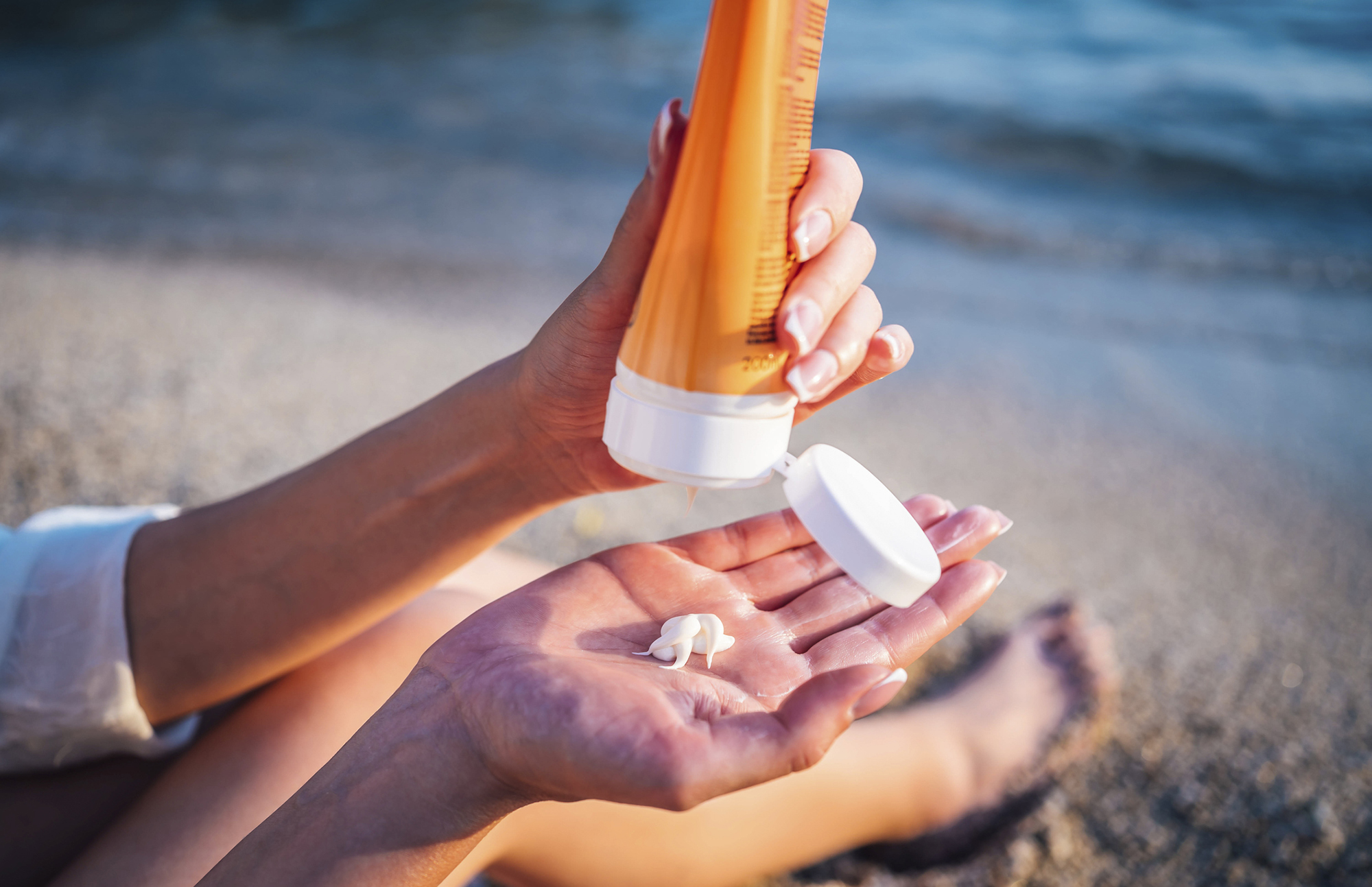As summer approaches, you’re probably looking forward to having some fun in the sun. However, unprotected sun exposure can lead to skin damage, premature aging and even skin cancer.
Protecting your skin from harmful ultraviolet (UV) rays is crucial, and sunscreen is a key component of any effective sun care regimen. In fact, daily use of sunscreen with sun protection factor (SPF) 15 can reduce your risk of melanoma by 50 percent.
But with so many options available, how do you choose the right one?
There are two primary types of sunscreens: mineral and chemical. Each type offers unique benefits and works differently to shield your skin from UV rays. Understanding the differences between these sunscreens can help you choose the right protection for your skin and lifestyle.
Mineral vs. chemical sunscreen: What's the difference?
Not all sunscreens are created equal. The two types of sunscreens—mineral and chemical—contain different active ingredients and protect your skin in different ways.
Mineral sunscreens contain active ingredients such as zinc oxide or titanium dioxide, which sit on top of the skin and act as physical barriers, reflecting UV rays away.
Chemical sunscreens contain organic compounds like oxybenzone, avobenzone and octocrylene that act as chemical, rather than physical, barriers. These ingredients absorb UV rays, convert them into heat and then release that heat from the skin.
Which one is best for me?
Both mineral and chemical sunscreens are considered safe and approved by the U.S. Food and Drug Administration (FDA). But their effectiveness may depend on your skin type.
“Mineral sunscreens are generally considered safer for sensitive or acne-prone skin because they are less likely to cause irritation or allergic reactions,” said Pankti Tamboli, D.O., a physician with Inspira Medical Group Primary Care. They start working immediately upon application and are effective against both UVA and UVB rays. However, they can leave a white residue, which are less suitable for darker skin tones.
“Chemical sunscreens are popular for their lightweight feel and easy blending without a white cast,” said Dr. Tamboli. They need to be applied 15-20 minutes before sun exposure. However, chemical sunscreens may cause skin reactions in certain people.
Another option is hybrid sunscreens, which combine mineral and chemical filters to offer comprehensive protection. When choosing a sunscreen, consider skin sensitivity, allergies and specific conditions. Consult with a dermatologist if you have specific concerns.
What else should I look for in my sunscreen?
When choosing a sunscreen, consider one that is broad-spectrum, contains a high SPF and is water-resistant. “Make sure to select a broad-spectrum sunscreen, which shields against both UVA and UVB rays, preventing sunburn and skin aging,” said Dr. Tamboli. “Also, consider a sunscreen with a high SPF, like SPF 30 or 50. The higher the SPF, the more protection it offers. If you’re going to be swimming or sweating, choose a water-resistant sunscreen, effective for either 40 or 80 minutes.”
The FDA recommends using broad-spectrum sunscreen with SPF 15 or higher, even on cloudy days, and reapplying at least every two hours.
The bottom line: Any sunscreen is better than none
Whether you opt for mineral, chemical or hybrid sunscreens, making sunscreen a non-negotiable part of your daily routine is crucial for protecting your skin from the harmful effects of UV radiation. “Remember,” said Dr. Tamboli, “the best sunscreen is the one you’ll use regularly.”
Before spending time in the sun, understanding your skin cancer risk is crucial. Schedule a primary care appointment at Inspira.
